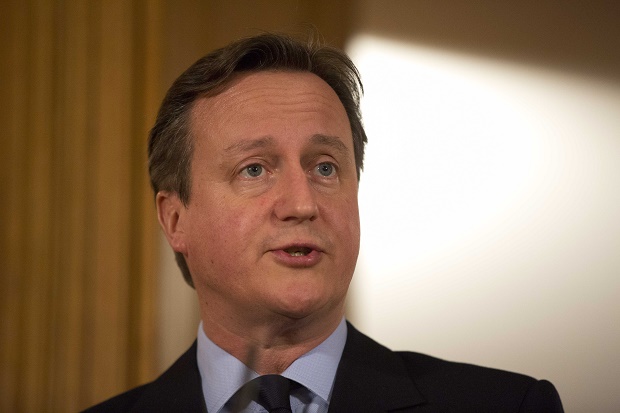British PM defends Google tax deal

British Prime Minister David Cameron speaks during a press conference with Ireland’s Prime Minister Enda Kenny after their meeting at 10 Downing Street in London, Monday, Jan. 25, 2016. AP Photo/Pool
LONDON, United Kingdom—British Prime Minister David Cameron defended the tax deal struck with US Internet giant Google as he came under fire in parliament on Wednesday.
Google is to pay £130 million ($185.4 million, 172 million euros) in back taxes to Britain following a government inquiry into its tax arrangements, a company spokeswoman said Friday.
READ: Google agrees to pay UK for taxes owed for decade
Cameron was grilled on the deal in the House of Commons by opposition Labour leader Jeremy Corbyn.
The left-wing veteran claimed Google was paying an effective tax rate of three percent on its profits made in Britain. The 2015-2016 corporation tax rate is 20 percent.
“I do dispute the figures that you give,” Cameron replied.
“But I am absolutely clear that no (British) government has done more than this one to crack down on tax evasion and aggressive tax avoidance.”
Corbyn said workers filling in their tax returns “do not get the option of 25 meetings with 17 ministers to decide what their rate of tax is.
“Why is there one rule for big multinational companies and another for ordinary, small businesses and self-employed workers?”
Cameron said he was “genuinely angry about what happened to Google” under previous Labour governments.
The Conservative leader, who took office in 2010, said: “Google’s taxes are going up under this government.
“We have put in place the diverted profits tax that means that this company and other companies will pay more tax in future.
“And more tax in future than they ever paid under Labour, where the tax rate for Google was zero percent.
“We have changed the tax laws so many times that we raised an extra £100 billion from business in the last parliament.”
On its front page Wednesday, The Times newspaper said Italy was set to strike a far tougher deal with Google, equating to 15 percent of its profits there.
Britain’s tax deal with Google follows a six-year probe by Her Majesty’s Revenue and Customs in response to controversy over low taxes paid by multinational corporations which operate in Britain but have headquarters and subsidiaries elsewhere.
The diverted profits tax—nicknamed the “Google tax”—is intended to stop firms moving profits abroad.
Google is among several top technology firms under pressure over complex tax arrangements.
French Finance Minister Michel Sapin weighed in with Paris’ viewpoint later Wednesday, saying Google should pay back taxes as a matter of “necessity.”
“It is good that Google is dealing with these questions in Great Britain—and it is a necessity that it does so in France,” Sapin said as the OECD signed off on its own framework for cross-border fiscal cooperation via the automatic exchange of country-by-country reports from next year.
Sapin said Paris believed strongly that Google “pays what we think is necessary” as “it brings in large scale sales in France.”
Media reports in France earlier said the French tax authorities had, following a search in 2011 of Google’s Paris offices, decided as early as two years ago to demand the tech giant make good with a payment of as much as 500 million euros.
In Britain, Eva Joly, vice chairwoman of the Special European Parliamentary Committee on Tax Rulings, said it wanted to question Britain’s finance minister George Osborne about the “very bad deal”.
“We also want the head of Google to come and tell us, because this is not fair competition,” she told BBC radio.
“This bad deal is very bad news for everybody because it shows that the UK prepares itself to become a kind of a tax haven to attract the multinationals.”
She added: “You have to do a lot of calculation to know whether the deal that was struck with Google was a good or a bad deal. And I can tell you it is a very bad deal.”














